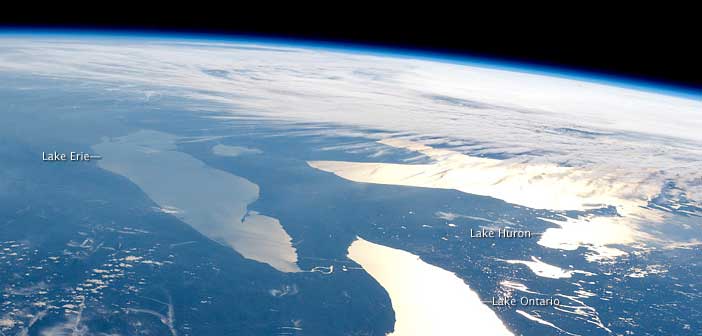BRANTFORD – When Melanie Debassige finds herself faced with a challenge, she peels back the labels and stereotypes to reveal opportunities. It is that kind of approach to life that has taken a one-time teenage mother on a path to being named by the Women’s Executive Network (WXN) as a 2019 Canada’s Most Powerful Women Top 100 Award winner.
The list of Top 100 Winners was released on November 21, “paying tribute to the outstanding women across Canada who advocate for diversity in the workforce and inspire the next generation of leaders.”
“It’s an honour to receive recognition as one of the Women’s Executive Network’s 2019 Most Powerful Women,” said Melanie Debassige, executive director of Ontario First Nations Technical Services Corporation (OFNTSC), when the award was announced. “This award is very meaningful to me as I have strived to live my life in a way that will positively impact First Nations communities in Canada. I hope to inspire present and future First Nations women to pursue their dreams.”
It has really been a whirlwind couple of years for Ms. Debassige, when The Expositor caught up to her on Monday. “It has been quite an undertaking,” she admitted. “I was very busy, still am,” she admitted. But Ms. Debassige has not lost her sense of humour in the journey. “No pressure,” she chuckles about living up to being named one of Canada’s most powerful women.
Ms. Debassige currently sits on three boards. She was appointed to the Canada Energy Regulator (CER) earlier this year, a new organization designed to separate the governance aspect from the regulatory body.
“It has been quite a learning opportunity,” she said. “I’ve been to a couple of meetings now and I am learning a lot.”
The CER is currently assembling an Indigenous advisory committee that will help inform Canada’s energy sector through an Indigenous lens.
Ms. Debassige was appointed by the lieutenant governor to the Ontario Clean Water Agency (OCWA) board of directors in October 2013, and she is currently in her third term. Ms. Debassige also leads the OCWA board’s First Nations Task Force.
“We are a Crown agency,” notes Ms. Debassige of OCWA (incidentally, the company that operates most of the Island’s water systems) and, as such, OCWA is expected to generate revenue. But also, she notes, it is expected “to do what’s best for the client.”
Ms. Debassige also sits as a board member (and treasurer) of Reconciliation Canada organization that leads the way in “engaging Canadians in dialogue and transformative experiences that revitalize the relationships among Indigenous peoples and all Canadians.” The agency’s model for reconciliation “engages people in open and honest conversation to understand our diverse histories and experiences. We actively engage multi-faith and multi-cultural communities to explore the meaning of reconciliation.”
“There are a lot of really great people on the board,” said Ms. Debassige of Reconciliation Canada, citing Minnesota law professor John Burrows and Queens University law professor Bob Watts as examples.
Ms. Debassige, MBA, ICD.D, was appointed as the executive director of the OFNTSC in February 2018, the first woman to be appointed in that role in the 25-year history of the organization.
She completed the Director’s Education Program at the Rotman School of Management and is a certified corporate director which complements her Master’s in Business Administration. She has also been recognized by the Canadian Board Diversity Council in the Diversity 50.
The OFNTSC was established in 1995 to provide expert technical advisory services to the First Nations of Ontario. At that time, it was the first aboriginal organization in Canada mandated to provide professional technical and advisory services to First Nations communities and foster their technical self-reliance. The OFNTSC creates future capacity by encouraging youth to pursue careers in science and technology. The OFNTSC attends career fairs and encourages young people to enroll in science and technology related courses offering scholarships, often in partnership with the corporate sector.
When asked about any advice she might have for a young kwe seeking a career path, Ms. Debassige had little hesitation. “What you think is an obstacle in your life, turn it into an opportunity,” she said. “That is a very early lesson I learned. People think that having a child as a teenager is an obstacle, but I learned a lot about time management.”
Ms. Debassige admitted that she had a lot of help along the way, however. “My son’s family is awesome,” she said. Although her relationship with her children’s father did not pan out, they have focused on the well-being of the children.
She also cited the experiences of being the child of a residential school survivor and having herself attended an Indian Day School as formative parts of her life. “I have learned resilience,” she said. The trauma of her own family’s experience helps inform her in her board roles, but family still plays a vital role in her world.
“I wouldn’t be where I am without my mom, dad and my aunties,” she said. “They helped me get there.”
As to any suggestion leveraging her current notoriety into a more political role, Ms. Debassige laughs. “I love my day job,” she said. “Politics is really something my dad did. I really admire when people step up to do that role.” Currently, however, she finds herself focused on her children. “My son is in high school,” she said. “He will be there for four years.”





